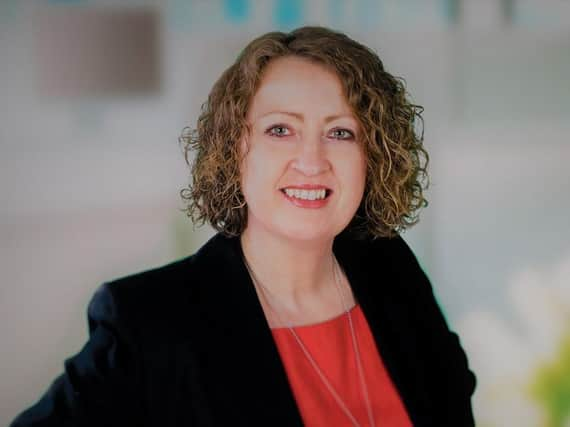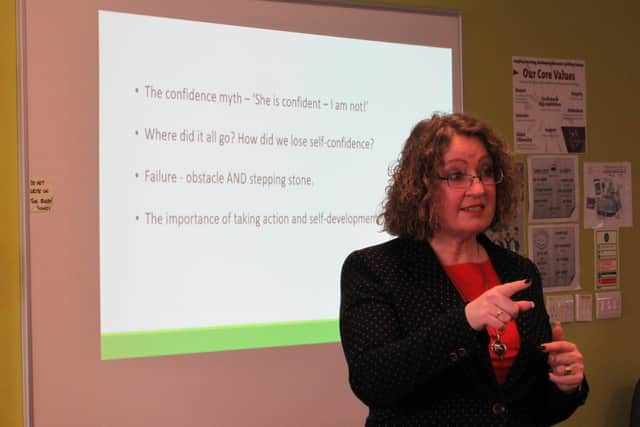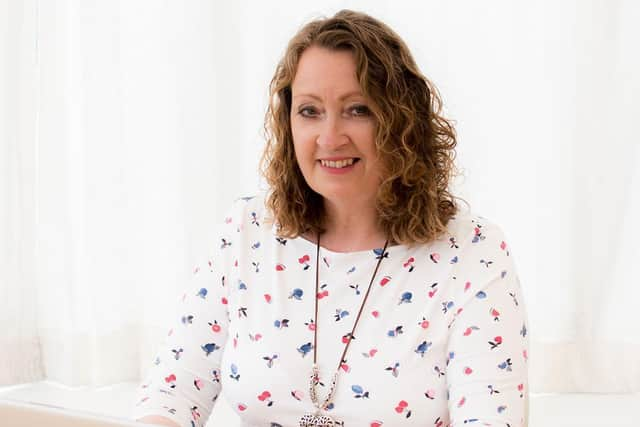The Self Development Hub: The Preston psychotherapist fighting back against the rising tide of work-related stress


Such statistics make for grim reading, but a Preston-based psychotherapist is on a crusade to change things for the better.
“I’ve worked with so many people who have become ill as a result of work stress and a lack of confidence, and I began to realise that a lot of it was preventable,” says Anne Millne-Riley, who founded of The Self Development Hub around 12 months ago. “I’ve always enjoyed working with people and training has always been in my blood.”
Advertisement
Hide AdAdvertisement
Hide AdA service which helps individuals and businesses tap into invaluable preventative measures to ensure better mental health for themselves and their staff, The Self Development Hub provides training in stress management, public speaking, managing difficult relationships, impostor syndrome, assertiveness, and resilience.


“You wouldn’t believe the range of people who come to me for courses on things like public speaking: everyone from lower-level sales executives to people on TV who you’d recognise,” says Anne. “Everyone can be affected by performance anxiety and a lack of confidence - confidence can be really transient, usually due to things like stress.
“Knowing you’re helping people with something which can cause such anxiety is why I love my job and why I do it,” adds Anne, the author of the 2018 book The Confidence Guru. “It’s really rewarding work.”
At a time when the Covid-19 pandemic has caused many people to face the unanticipated need to either find a new job or adapt to vastly different working conditions, Anne says that it’s positive that society and the workplace zeitgeist pays more attention to the importance of good mental health and well-being, but that far more needs to be done.
Advertisement
Hide AdAdvertisement
Hide Ad“We’ve come a long way, but we’ve got a long way to go,” says Anne regarding concepts such as employees exercising self-care and businesses’ willingness to support staff well-being. “A lot of organisations talk the talk but don’t walk the walk and so I want to demonstrate the financial incentive to looking after staff as well as the moral imperative to do so.


“Happy staff are more productive and loyal, so valuing and looking after them means you get more out of them,” adds Anne, 54. “As companies realise how much money they lose to staff ill-health and the training and wellbeing measures that can make a difference between somebody being off for two months and coping with pressure, they’ve understood the importance of investment.”
Powerfully enthusiastic about helping people learn the basic tools to enable them to be more confident, happy, healthy, and productive not only in the workplace but in their everyday lives, Anne - who’s from Liverpool but who’s lived in Preston since the age of eight - is a firm believer in the ability of psycho-education to empower people so they can feel more fulfilled.
Having seen an increase in people contacting her during lockdown, Anne is also hoping that her work with The Self Development Hub can enable her to assist those who would otherwise be unlikely to reach out for help through more traditional therapy or counselling, thus allowing her to support a wider range of people.
Advertisement
Hide AdAdvertisement
Hide Ad“I’ve done a lot of work with couples because it’s been a strain on a lot of relationships,” says Anne of the past year or so. “Previously, we’ve taken it for granted that we can go out, see, and chat to others, and so with that having been stopped, there are natural concerns about working from home and being inside a lot.
“Hopefully, going forward, we’ll value the little things, like being able to nip out and have a coffee with someone,” she adds.